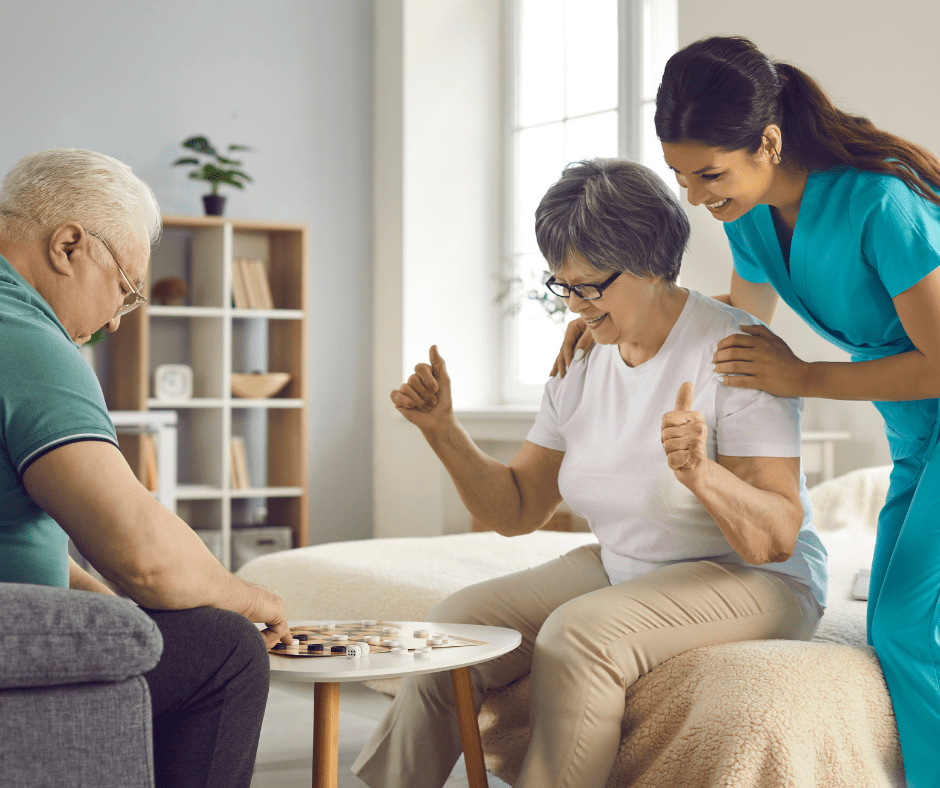Taking care of a loved one due to age or illness is no easy task, but add the complication of Alzheimer’s disease and the responsibility can feel even more overwhelming. According to Redfin, “Alzheimer’s disease affects about 5.4 million Americans, about 5.2 million of which are 65 and older. It can be your grandparent, your cousin, your sibling or even your parent who faces the diagnosis. Eventually, those with Alzheimer’s require round-the-clock care, and for many families, that means taking the loved one into their own home.”
With symptoms such as confusion, memory loss, decreased sense of touch, misplacing items, and vision problems, it’s imperative that the caretaker creates a home environment that supports these debilitating side effects. While some of these tweaks require a financial investment, others are simple changes that will ensure the safety, comfort, and quality of life of their loved one.

Create Visual Cues
Due to memory loss, feelings of confusion, and lack of judgment, it can be difficult for someone diagnosed with Alzheimer’s to manage simple daily tasks. Posting visual cues and labeling items can help from an anxiety and safety standpoint. For example, labeling “hot and cold” on faucets and “don’t touch” on the stovetop. Consider placing a photo and label of drawer contents — think socks, pants, etc. — so loved ones can easily find items used on a daily basis.
Safety Rails And Staircases
It’s crucial to install safety rails next to the toilet and in the shower/tub to prevent a potentially fatal fall. While it’s best for a person with Alzheimer’s to avoid stairs, consider installing a chair lift if this isn’t possible. At the very least, make sure each stair has a slip guard and that railings are sturdy. Setting up your loved one on the ground level eliminates this problem altogether, but place a gate across the top and bottom of the stairs just to be safe. Keep the door to the basement securely locked to prevent a tumble.
Implement Proper Lighting
Many Alzheimer’s patients suffer from vision problems, so make sure rooms are properly lit to prevent tripping and to aid with the quality of daily activities. Make sure electrical cords are completed removed from walkway areas — tying and tacking or taping them down provides added security.
Be Mindful Of Slippery Surfaces
Low-pile carpeting is best for slip-free walking and, at the very least, should be placed in the bedroom or common areas where your loved one spends the majority of her time. Since many falls take place on slippery bathroom flooring, install washable, foam-backed carpeting in lieu of a tile floor. Be mindful of the cleaning products and waxes you are using on hard floor surfaces, as many products can leave behind a slippery coating that can encourage a fall.
Lock Up Hazardous Items
Take a room-by-room inventory of every living area in your house to ensure that sharp objects, chemicals, medication, alcohol, and any other potentially hazardous items are locked up and out of reach. It’s also important to be mindful of leaving out your own personal belongings because they could be a potential risk to a loved one.
Be Mindful Of The Home Exterior
With so much attention to the details that need to occur inside of the home, it can be easy to dismiss what needs to be taken care of on the outside — but it definitely shouldn’t be overlooked. Whether or not a wheelchair is required on a regular basis, a textured ramp is a safer alternative to stairs because they can feel like an obstacle to someone with Alzheimer’s. If a DIY or professional ramp isn’t possible, then check railings and stairs for stability and add reflective tape to the edges to increase visibility. Walkways should also be level and free of debris.
Alzheimer’s Is Not A One-Size-Fits-All Disease
Remember that Alzheimer’s disease has many stages, so the above modifications may take a more extreme or more relaxed direction depending on the current condition of your loved one. It’s important to seek advice from a medical professional if you plan on leaving someone with Alzheimer’s home alone. In some cases, being alone can worsen their condition or create the temptation to attempt potentially dangerous activities such as cooking or taking a solo stroll outside. No two cases of Alzheimer’s are exactly alike, so it’s crucial to be in tune with your loved one and realize that their behavior may change over time, which means the way you set up your home may have to change, too.
For those of you who are thinking about getting a Medical Alert System for your loved one, this Medical Alert Fact Guide can answer many of the questions you might have when it comes to making the right choice https://www.reviews.com/blog/medical-alert-guide/.





